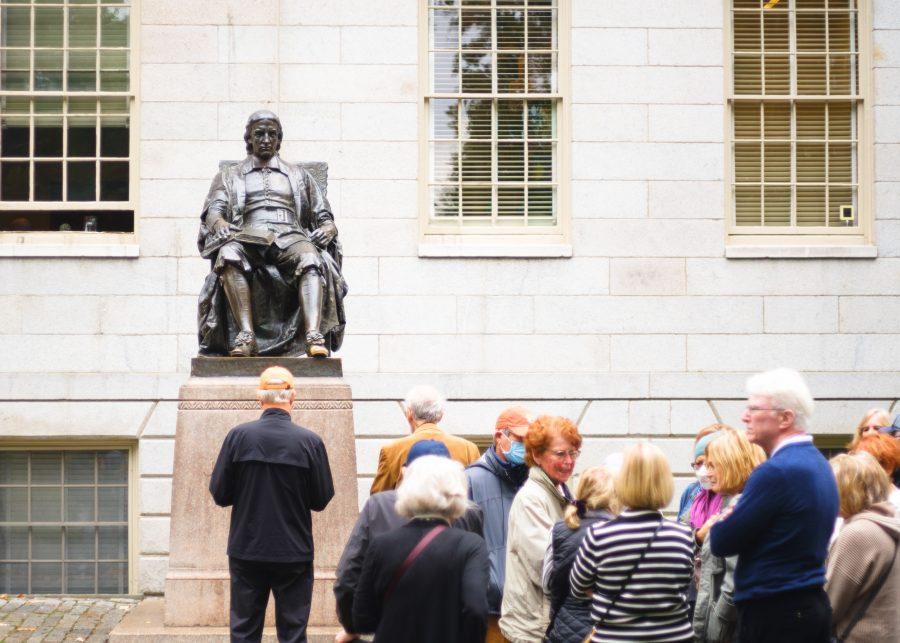Earlier in January 2022, the Supreme Court decided to hear the case of Harvard University’s race-based admission process, which could potentially strike down affirmative action in colleges. Alongside Harvard’s case, the Supreme Court will listen to a similar lawsuit brought by the anti-affirmative action group Students for Fair Admissions against the University of North Carolina. Both institutions were accused of discriminating against Asian-American and white applicants. (1) Further developments in the case hearing might overturn years-old precedent, University of California v. Bakke of 1970, that “allowed racial diversity to become an organizing principle for college admissions.”
The argument made by Students for Fair Admissions is that universities should drop race as one of the factors in the admissions process. The SFFA claimed that the college’s race-conscious admission process breaches the Civil Rights Act of 1964, which forbids discrimination “on the basis of race, color, or national origin” in institutions that receive federal funding. The case was filed and heard in two federal courts, which ruled out the decision in favor of Harvard, indicating that race is one of the crucial factors in the admission process to promote diversity. (3,4)
With all these allegations, Harvard said in a statement, “Harvard College does not discriminate against applicants from any group in its admissions processes. We will continue to vigorously defend the right of Harvard, and other colleges and universities, to seek the educational benefits that come from a class that is diverse on multiple dimensions, from its capacity for academic excellence to its ability to help create a campus community that gives each student the opportunity to learn from peers with a wide variety of academic interests, perspectives and talents.” (2)
With the new term, the Supreme Court will hear these two independent cases on Oct. 31. Initially, the court decided to rule on both cases jointly, but the appointment of Justice Ketanji Brown Jackson compelled the court to separate the instances, as Justice Brown Jackson had to recuse herself from the Harvard case due to her personal association as a former member of the school’s Board of Overseers. [3]
UMass Boston Political Science Department Professor Elizabeth Bussiere commented on the topic, saying, “I think that the majority of the court will overturn the precedent that has, in the past, affirmed the constitutionality of affirmative action programs used in a limited way to promote diversity. I think their view is that universities should make decisions, especially state universities, should make decisions without regard to race.”
When asked about the likely outcomes of the hearing, Professor Bussiere said, “In terms of what’s likely to occur, there is evidence that state universities where affirmative action has been banned, they have lost minority students… I suspect there is going to be, obviously, a full-throated effort to try to get minorities through economic means, the economically disadvantaged, and so you can have measures of such low socio-economic status. I don’t think that will be banned because it is not a race, not sex and so that might be a way to improve diversity once affirmative action is not allowed.”
Professor Bussiere also suggested that there have been schools that tried the economic route, and to an extent, it can help, but it still hasn’t made up for affirmative action policies where race and other factors are taken into consideration.
Alongside the case of affirmative action, the court will rule on the Voting Rights Act, which is aimed at abolishing discrimination in voting. Readers can anticipate more updates on the affirmative action case in the coming weeks as the court furthers with the hearing.
Sources:
1: https://www.bostonglobe.com/2022/01/24/metro/future-affirmative-action-higher-education-limbo-supreme-court-agrees-hear-harvard-case/
2: https://www.harvard.edu/admissionscase/lawsuit/
3: https://www.thecrimson.com/article/2022/9/12/scotus-affirmative-action-october/
4: https://www.thecrimson.com/article/2022/5/4/affirmative-action-supreme-court-sffa-filing-may2/





















































